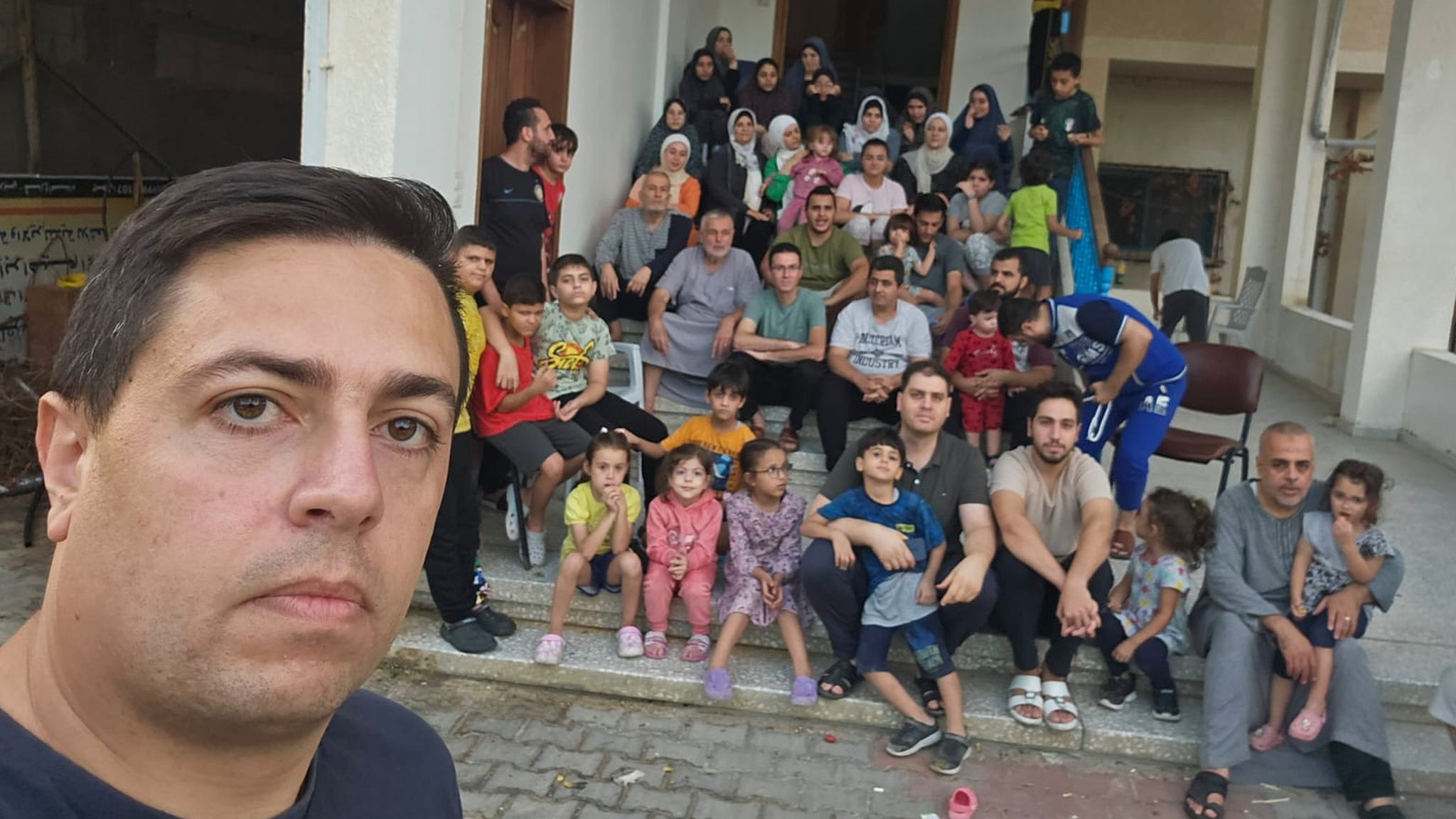Panic and confusion at scene of Gaza hospital blast
- Published
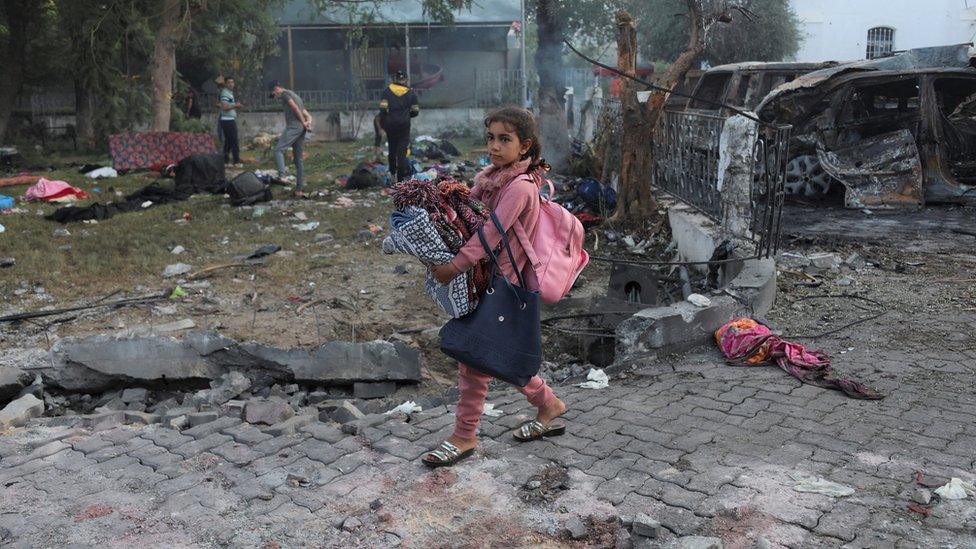
Israel and the Palestinians are locked in claim and counter-claim about what happened at the hospital
Palestinian health officials now say that at least 471 people were killed by an explosion at a hospital in Gaza City on Tuesday night. They blame an Israeli air strike, but Israel's military says the blast was caused by a failed rocket launch by the militant group Palestinian Islamic Jihad. The BBC's Rushdi Abu Alouf visited the scene and found that body parts are still being collected.
Blood-soaked mattresses are strewn across the courtyard of the Al-Ahli Arab hospital, along with clothing and personal possessions left behind in the chaos that followed the blast and the huge fire it caused.
In a nearby car park lie the smouldering wrecks of more than a dozen cars.
The surrounding buildings are also damaged, apparently pockmarked by shrapnel. But no large impact crater is visible.
There is an atmosphere of panic, with people struggling to understand what happened at a place that was supposed to be protected under international humanitarian law.
"We left our home to come here," a woman who survived the explosion told the BBC. "We thought it would be safe, but then it got bombed."

More on Israel-Gaza war
Follow live: Latest updates
History behind the story: The Israel-Palestinian conflict
Hamas attack: Family seeks answers after live-stream horror
From Gaza: BBC reporter flees Israel bomb warning

Doctors said that most of the victims were among the several thousand civilians who had been sheltering at the hospital since Friday. They fled there after the Israeli military told civilians to evacuate the north of the Gaza Strip, as it stepped up its air strikes on militant group Hamas.
Many staying inside the courtyard were elderly or infirm, unable to leave for the south because they did not have access to transport.
One witness told me that they had been sitting on the ground when it was rocked by a huge blast.
People from all around the Gaza Strip soon arrived at the scene to try to help, he said. They collected bodies and began evacuating injured people.
Those in a serious condition were taken away on motorbikes, while those less hurt had to make their way on foot to Shifa hospital, 3km (two miles) away.
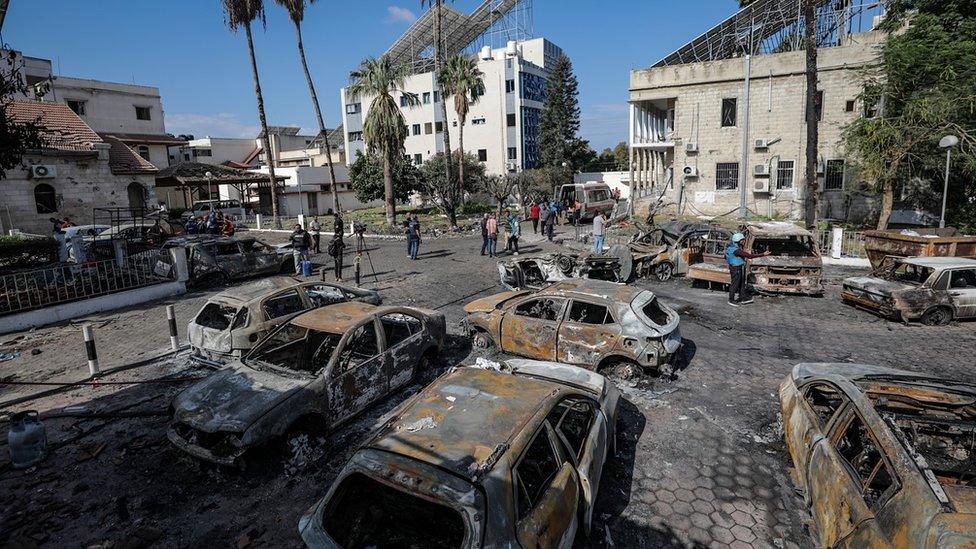
Many of the victims were displaced people who had been sheltering in the grounds, thinking the hospital was safe
A second man said he heard something just before the blast but did not know what it was.
He explained that he returned to the hospital afterwards because there was no other option.
"Where else can we go? Are we leaving like in 1948?" he asked, referring to the first Arab-Israeli war, when hundreds of thousands of Palestinians were forced or fled from their homes.
Despite their protected status, 20 hospitals in the north, including Al-Ahli Arab, have received orders to evacuate their patients and staff, according to the World Health Organization.
The UN agency has said the orders are impossible to carry out, given the current insecurity, critical condition of many patients, lack of ambulances, and shortage of beds elsewhere, and warned that it will "further worsen the current humanitarian and public health catastrophe".

- Published19 October 2023
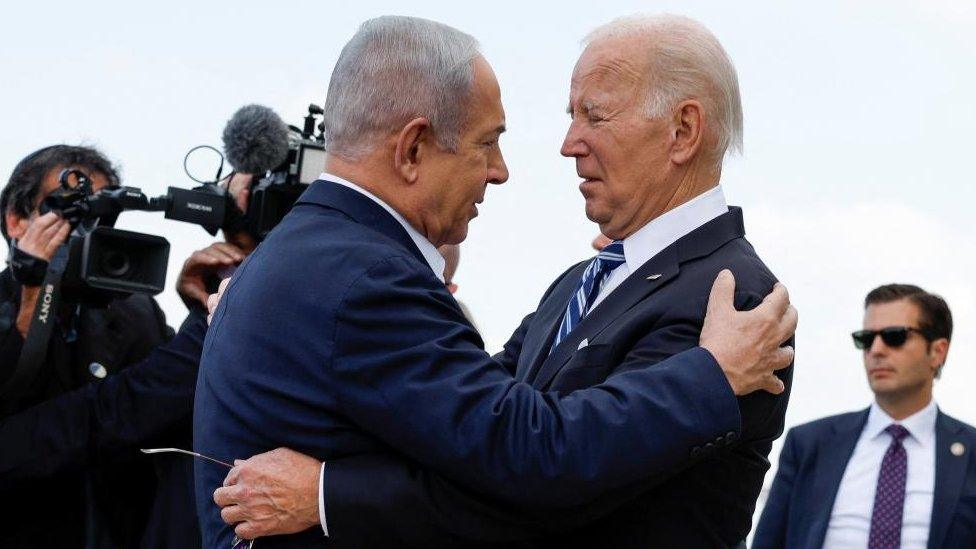
- Published18 October 2023
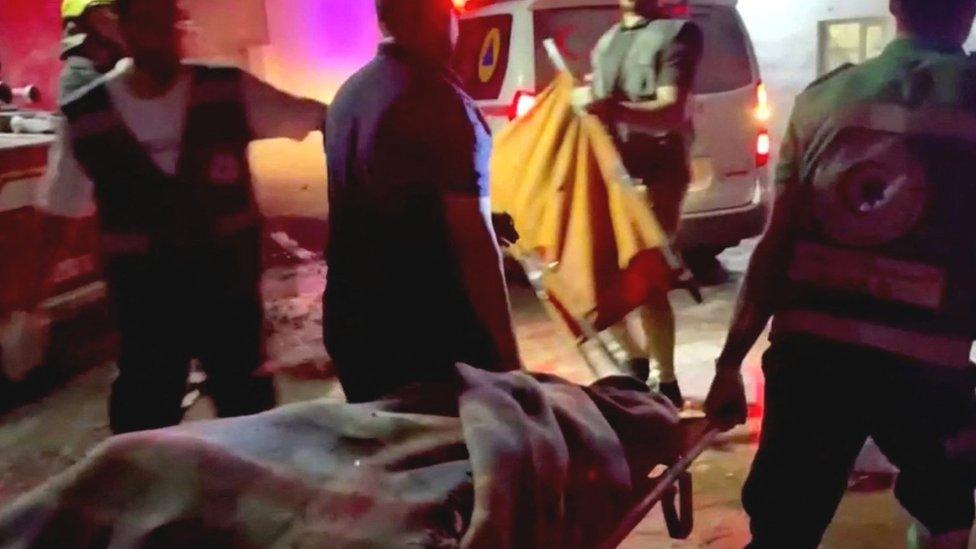
- Published24 October 2023
